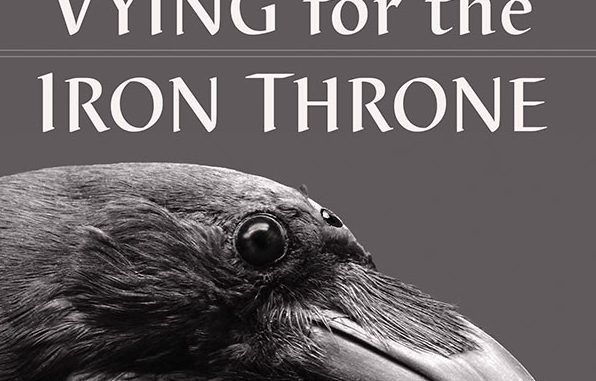
Review Fix chats with “Vying for the Iron Throne†editor Lindsey Mantoan, who details the creation process behind the book and how she feels the Game of Thrones series will stand the test of time.
About the Author:
Lindsey Mantoan is an assistant professor of theatre at Linfield College in McMinnville, Oregon.
About the Book:
Game of Thrones has changed the landscape of television during an era hailed as the Golden Age of TV. An adaptation of George R.R. Martin’s epic fantasy A Song of Fire and Ice, the HBO series has taken on a life of its own with original plotlines that advance past those of Martin’s books. The death of protagonist Ned Stark at the end of Season One launched a killing spree in television—major characters now die on popular shows weekly. While many shows kill off characters for pure shock value, death on Game of Thrones produces seismic shifts in power dynamics—and resurrected bodies that continue to fight. This collection of new essays explores how power, death, gender, and performance intertwine in the series.
Review Fix: What inspired the creation of this book?
Lindsey Mantoan: With its frequent power shifts, compelling and flawed characters, and gritty production design, Game of Thrones has captured the imagination of international audiences. The most popular TV series in the world represents cruel tyrants, religious fanatics, and layers misogyny and racism, and it’s important to examine whether the show effectively critiques brutal power structures or simply revels in them. The book Vying for the Iron Throne investigates the messages the show puts forward and the ways in which audiences receive them.
Review Fix: What makes Game of Thrones worthy of a book like this in your opinion?
Mantoan: Game of Thrones explores the question of what power does to people—those who have it and those who don’t—and it offers twists and turns that keep audiences surprised and invested. The show is such a layered text that it provides rich territory to analyze the way contemporary values are couched in a medieval fantasy world.Â
Review Fix: What was the writing process like?
Mantoan: Because the book is an anthology, the bulk of the process was editing contributions from writers around the world. My co-editor and I put out a call for submissions, we curated the proposals into four sections (Death, Gender, Power and Performance), and guided the writers through their process. Then, based on the constellation of essays and my own personal investments in the series, I wrote five short pieces I called “Ravens†that are interspersed throughout the book. The writing process overall was a blast—it felt like creating a new community to analyze a story we all adore but sometimes also question.Â
Review Fix: In your opinion, how do you feel people will feel about Game of Thrones in a decade or so?
Mantoan: Oooh, this is a fun question. I think that Game of Thrones has shaped generations and become a well-known cultural touchstone, much the way Harry Potter has. The fanbase has shown the such a level of devotion and passion for this series that I believe they will rewatch (and reread), quote, debate, and keep the series very much alive for decades to come.
Review Fix: What did you learn about GOT through the writing process that you weren’t expecting?
Mantoan: Based on my previous knowledge and interests, I found the chapters on the costumes and music particularly illuminating, and the chapter on Shireen Baratheon’s death taught me the most. While it’s perhaps predictable, my love for the show both deepened and grew more fraught as I read the insights offered by these writers.
Review Fix: What are your goals for the book?
Mantoan: Fans of the series have loved swimming around in the many storylines and prophesies, and have largely focused on predictions for its conclusion. Now that the series is almost over, I think stepping back from the plot arc and focusing more on what cultural work this story has done and will continue to do is really valuable. Vying for the Iron Throne does just this—it helps fans process not only their feelings about the show, but also what the show says about what we care about, what we’re willing to overlook or forgive, and the potential to break the metaphoric wheels of our own society.Â
Review Fix: How would you like it to be remembered?
Mantoan: I’d like the book to be remembered as a productive and fun way to engage with the most important television show of the twenty-first century.Â
Review Fix: What’s next?
Mantoan: My co-editor and I are trying to decide if we should put together another volume dedicated solely to the final season of Game of Thrones. I guess it’ll depend on what happens in the final episode!


Leave a Reply